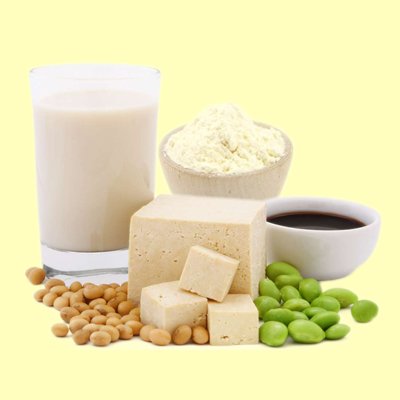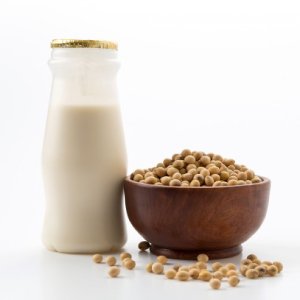Protein is a vital nutrient for our bodies, traditionally sourced from animal products like meat and dairy. However, an increasing number of people are turning to plant-based alternatives for various reasons, including dietary preferences, allergies, and health concerns. Among these alternatives, soy protein and organic protein powder have emerged as popular choices. This article will explore the facts, sources, and health benefits of these plant-based proteins.

Soy Protein And Organic Protein Powder Health Benefits
Understanding Soy Protein
Soy protein is derived from soybeans and is available in various forms, including soy protein powder, concentrates, and isolates. It’s a complete protein, providing all the essential amino acids required by the human body.
Soy Protein Isolates
Soy protein isolates are refined and purified forms of soy protein, containing a minimum of 90% protein on a moisture-free basis. They are produced from defatted soy flour, which has a lower content of protein components, essential fats, and carbohydrates.
Soy Protein Concentrates
Soy protein concentrates contain about 70% soy protein and can be produced from defatted soy flour without water-soluble carbohydrates. They are rich in fiber and are commonly used in baked foods, breakfast cereals, and some types of meat products.
Soy Flour
Soy flour is produced by grinding soybeans into a powder. It comes in three types: whole, full-fat (containing natural oils), and defatted (where oil is removed, leaving about 50% protein content with a higher level of water solubility).
Nutritional Value of Soy Protein
Soy protein is a rich source of protein, with soy flour containing 50% protein. It’s considered a high-quality dietary protein due to its digestibility and biological value, comparable to animal protein.
Here’s a comparison of protein content in some common food sources (per 3.5 ounces or 100 grams):
- Chicken breast: 31 grams
- Skinless salmon: 22 grams
- Eggs: 12 grams
- Tofu (made from soy): 8 grams
- Soy protein isolate: 90 grams
As you can see, soy protein isolate packs a serious protein punch!
Health Benefits of Soy Protein
Soy protein offers numerous health benefits, including:

- During Pregnancy: Soy protein is an excellent source of vitamin D, making it beneficial for pregnant women.
- Cardiovascular Health: Soy protein can help reduce serum concentrations of total cholesterol and low-density lipoproteins (LDL), promoting heart health.
- Cancer Prevention: Soy foods are rich in phytochemicals and plant-based chemicals that can help ward off tumor growth. Regular consumption of soy protein may lower the risk of certain types of cancer.
- Soy Milk: A Nutritious Beverage: Soy milk is a plant-based beverage produced by grinding, soaking, or boiling soybeans and filtering out the remaining particulates. It’s a great source of high-quality protein and is becoming increasingly popular as a dairy substitute.
- High-Quality Protein: Soy milk is a rich source of protein, providing 7 grams of protein per cup.
- Calcium and Iron: Soy milk is a good source of calcium and iron, essential for bone health and red blood cell function, respectively.
- Riboflavin and Vitamin B-12: Soy milk provides significant amounts of riboflavin and vitamin B-12, which are essential for cell function and red blood cell health.
- Lowering Cholesterol Levels: Soy milk contains no cholesterol and saturated fat, making it a healthier alternative for those with high cholesterol levels.
- Weight Management: Soy milk is low in calories and sugar, making it a good choice for weight management.
- Blood Vessel Function: Soy milk is rich in plant-based antioxidants, which can help maintain healthy blood vessels.
- Prostate Cancer Prevention: Regular consumption of soy milk, which is rich in phytoestrogen, may reduce the risk of prostate cancer.
- Prevention of Osteoporosis: Soy milk is a good source of calcium and vitamin D, which are essential for bone health.
- Postmenopausal Symptoms: Soy milk can help alleviate postmenopausal symptoms by supplying a significant amount of phytoestrogen.
- Prevention of Kidney Disease: Soy milk is a good source of fiber, which can help prevent sugar accumulation in the kidneys.
- Breast Cancer Prevention: Regular consumption of soy milk may reduce the risk of breast cancer.
- Boosting Immunity: Soy milk can help boost the immune system.
- Energy Booster: Soy milk is low in calories and fats, making it a good energy booster.
- Dairy Alternative: Soy milk is a great alternative to dairy milk, especially for vegetarians and those with lactose intolerance.
Potential Side Effects of Soy Milk
Some studies have found that preschool children may develop peanut allergies after consuming soy protein or organic protein powder.
Finishing Touch
Protein is an essential nutrient for our health, and it’s not just available from animal or dairy sources. Soy protein and organic protein powder, derived from soybeans, can fulfill our protein requirements. They offer numerous health benefits, making them excellent choices for those seeking plant-based protein alternatives.
